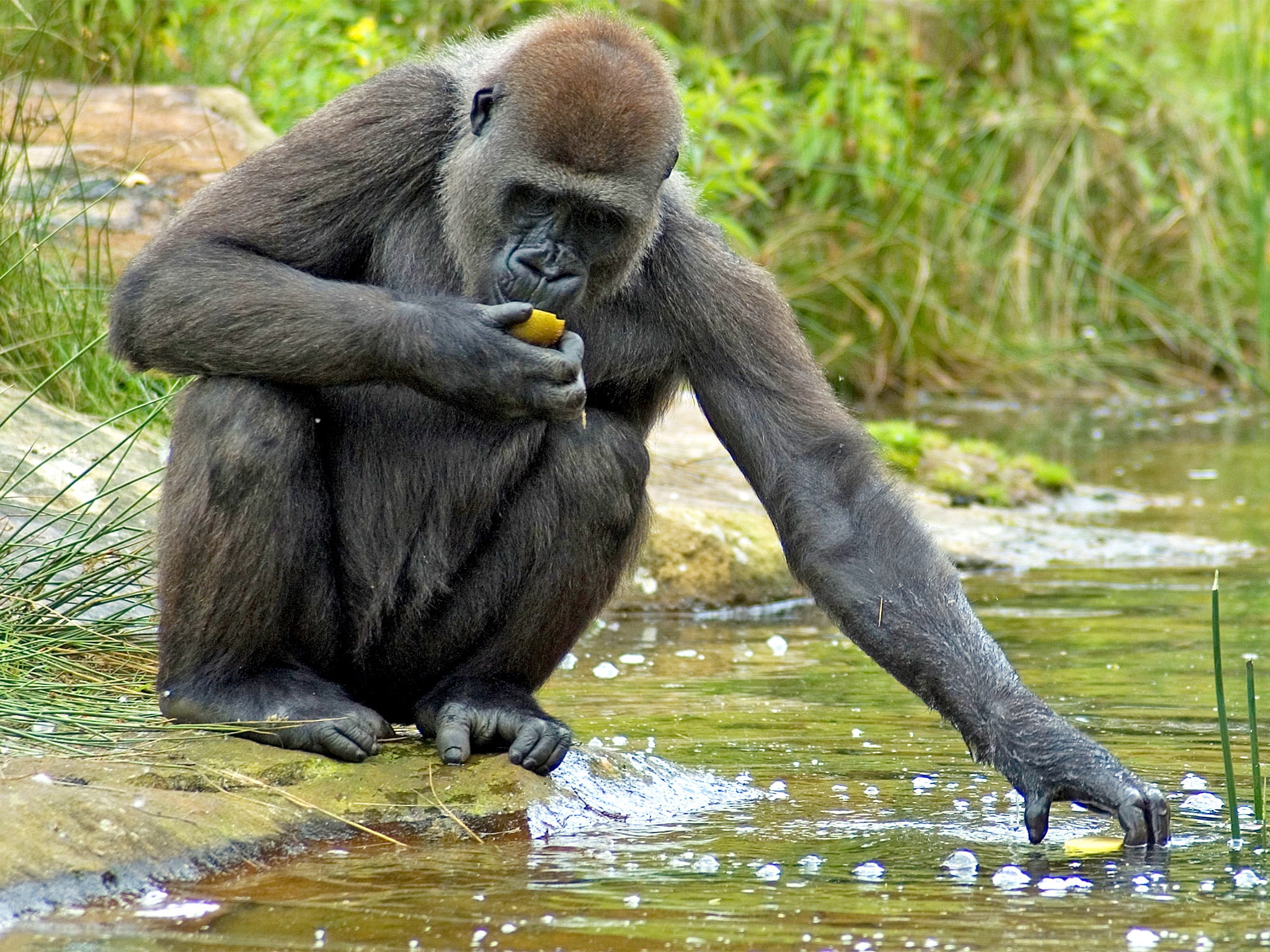Did humans come from the seas instead of the trees? Much-derided theory of evolution about aquatic apes is debated in London

Scientists, academics and medics gather this week in a London hotel to discuss a topic that has been virtually unmentionable in academic circles for decades: are humans descended from “aquatic apes” that spent more time swimming than dragging their knuckles on the ground?
The last time this question was asked, at a conference in 1992, there was much scoffing and ridicule. Other academics sneered and Bernard Levin wrote a full-page article lampooning the idea in a national newspaper.
This week’s conference, Human Evolution Past, Present and Future – Anthropological, Medical and Nutritional Considerations, at the Grange St Paul’s Hotel, has also already been the subject of much derision. Followers of the conventional and overwhelmingly accepted belief that our ancestors were very much land-based are launching a parody campaign online to argue we evolved from “space monkeys”. Most scientists will openly scoff at the idea of us deriving from water-bound primates.
But, perhaps emboldened by the presence of Sir David Attenborough – who was booked to attend the conference for one session but asked at the last minute if he could attend both days – the aquatic ape theorists are back.
The conference is chaired by Professor Rhys Evans, an ear, nose and throat surgeon at the Royal Marsden Hospital, who is candid about the scope of the conference. “We are trying to discuss the pros and cons of the theory,” he said. “But many of the things which are unique to humans – such as a descended larynx, walking upright, fat beneath the skin, and most obviously an extremely large brain – it seems can best be accounted for as adaptations to extended periods in an aquatic environment.” The original aquatic ape theory, developed by Sir Alister Hardy and made public in 1960, posited that a population of early humans, or hominoids, was isolated during tectonic upheaval in a flooded forest environment, similar to that of parts of the Amazon. Our ancestors, it was argued, either adapted to water – and climbing in trees – or died out. Over many generations, mutations that made swimming and diving easier reproduced in the population at the expense of the more traditional, water-averse ape genes.
Modern-day apes do not like water. In zoos all around the world, apes are contained by moats of water. Even wadeable moats are sufficient: if you drop a baby orangutan into water, it sinks like a stone. A human baby, however, will close its larynx and automatically paddle its arms and legs, giving you a few precious seconds to retrieve it.
The aquatic ape theory would explain this ability – unlike the traditional savannah theory of human evolution. Widely accepted wisdom states that when humans came out of the woods and on to the savannah, walking upright gave them an increased field of vision and freed up hands to use tools. Bipedalsim also exposed less of the human body to the harsh sun and humans shed hair and increased sweat production to cope with the heat.
But, the aquatic ape proponents point out, deer and antelope kept their fur and their quadrapedal ways on the savannah. Our copious salty sweat production, and water consumption requirements, they argue, are far more indicative of life in the water. And lions co-operate in hunting without evolving significantly larger brains than other cats.
The key ingredients for growing a large brain, according to Professor Michael Crawford, from Imperial College London, are found in fish. “DHA, or Docosahexaenoic Acid, is essential for developing brain tissue, and in order for our brains to grow to the size we have now, our ancestors must have had to eat a lot of fish.”
This would have taken place over many hundreds of thousands if not millions of years, and is part of the reason that the aquatic ape theory has evolved since its last incarnation, into, tentatively, the waterside theory.
“Molluscs, crabs and snails would be available in abundance in coastal regions, flooded or swamp forests, lagoons and wetlands,” Professor Evans said. “Such lifestyles, climbing and hanging vertically, grasping branches above the water, wading on two legs, floating vertically collecting foods amid floating vegetation – might help explain hominoid body enlargement, tail loss, vertical spine, dorsal shoulder blades, wide thorax and pelvis, great ape tool use and thickening of enamel.” So waterside theorists are now proposing a prolonged exposure and adaptation towards coastal living, stretching over several million years. They argue that fossil evidence seems to back this up.
A sense of playful open-mindedness has made the aquatic theory attractive. Humans like water: waterfront property is more expensive; rich people buy swimming pools; we drive to the sea to eat sandwiches in our cars, just to look at it. No other ape likes water at all. Of course, as the space monkey satirists counter, no other apes have travelled into space, but it doesn’t mean we evolved from primates on Pluto.
Subscribe to Independent Premium to bookmark this article
Want to bookmark your favourite articles and stories to read or reference later? Start your Independent Premium subscription today.

Join our commenting forum
Join thought-provoking conversations, follow other Independent readers and see their replies